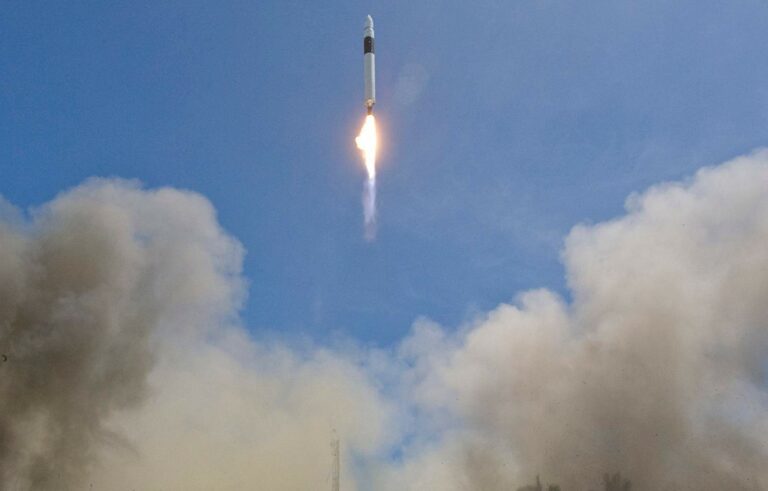The German government is concerned about the cost of the European IRIS² satellite system and wants to delay the programme. The Germans also have additional demands and desires, particularly regarding the supposed dominance of the French in the project.
According to Berlin, the French disproportionately reap the benefits of distributing the lucrative contracts involved in launching the Starlink counterpart.
French Eurocommissioner Thierry Breton, in a letter addressed to German minister Habeck, accuses the Germans of exerting political pressure on EU officials in charge of the tenders, Politico reports. Habeck is vice chancellor in the Scholz cabinet and minister of economic affairs and climate change.
Racing ahead with the plan
Breton’s letter responds to an earlier message from Habeck to the Eurocommissioner. He felt that Breton was racing ahead and called the plans with IRIS² ‘immature’. Also, the estimated cost would be exorbitant, about 12 billion euros. In its own communications, the EU keeps it at half of that amount, about 6 billion euros.
The plans have set to work a caravan of tender and procurement experts wrestling through thousands of pages of contracts negotiated with members of the SpaceRise consortium. This includes European airlines, telecom companies and satellite manufacturers. The satellites will likely be launched by Ariane 6 rockets built by French builder Arianespace for ESA, the European Space Agency.
Political and military sensitivity
The European Commission, through Breton, is decidedly ‘not amused’ by Germany’s reticence. It argues it is too late to back down. The German backlash is also surprising because of the project’s political and military sensitivity. Both Russia and Ukraine use the American private counterpart Starlink in their wars.
“I trust you agree that during a time of war in our continent and in preparing for geopolitical challenges our utmost task is to deliver on such a critical capability”, Breton admonished his German counterpart. He further called on Habeck to ‘refrain from untoward stances’.
The programme involves the construction and deployment of a European network of communications satellites. The acronym ‘IRIS²’ is short for Infrastructure for Resilience, Interconnectivity and Security by Satellite. The plan was a response to Russia and China’s advances in space and initiatives such as billionaire Elon Musk’s Starlink.
Making Europe less dependent
With IRIS², the EU aims to boost Europe’s space and communications sector and reduce dependence on non-European suppliers. IRIS² should be operational by 2027, is the plan. That should lead to the construction and launch of up to 170 low Earth orbit (LEO) satellites between 2025 and 2027.
An own satellite internet system provides additional network support during major outages and delivers connections to places not covered by traditional service providers. In addition, the network can cover part of Africa to provide an alternative to Chinese competitors.
Failed previous attempt
A previous attempt at something similar was the American-European tandem OneWeb, but it failed to raise the necessary capital and went bankrupt in 2020. After a relaunch, this company is now largely owned as Eutelsat OneWeb by an Indian multinational, with minority interests for the British and French.
The European Parliament and the European Council (the meeting of EU government leaders) agreed to the IRIS² plan in late 2022. Earlier that year, the proposal was presented by the European Commission, the EU’s executive body.
Also read: Brussels agrees on €6 billion European satellite internet system
